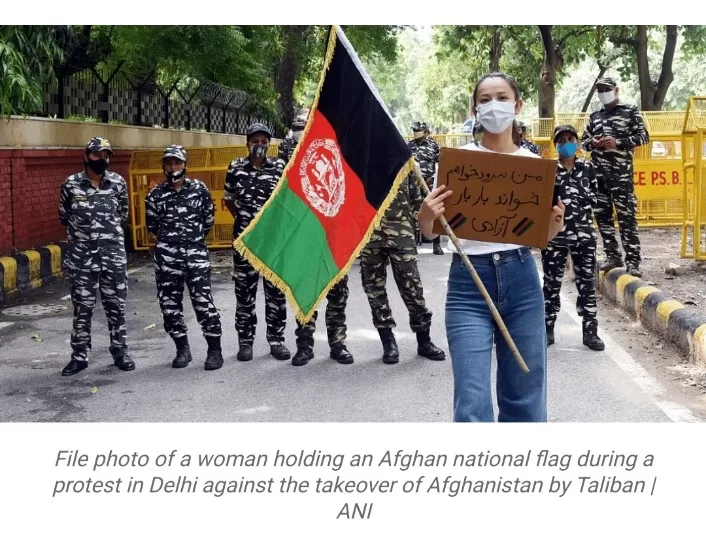New Delhi: In a poignant demonstration of their determination, hundreds of Afghan college students, whose student visas have expired, gathered in New Delhi on Wednesday to beseech the Indian government for visa extensions and the reinstatement of scholarships, as they grapple with the aftermath of the Taliban’s resurgence in Afghanistan.
Historically, India has extended generous scholarships to numerous international students, including those from Afghanistan, enabling them to pursue undergraduate and postgraduate degrees within its borders.
However, following the Taliban’s return to power in Afghanistan in August 2021, many Afghan students in India have been reluctant to return home, primarily due to apprehensions of potential retribution and the grim economic crisis gripping their home country.
Arsalan Qayumi, representing the Afghanistan Students’ Association, which organized the protest, expressed the students’ predicament, stating, “The Indian government has yet to disburse scholarships for the current academic session, which commenced in July. Furthermore, after the expiration of our visas, we live in constant fear of police apprehension.”
He added, “The students find themselves in a situation where they neither receive scholarships nor gain permission to work in India.”
Kumar Tuhin, the Director General of the Indian Council for Cultural Relations (ICCR), a division of the Ministry of External Affairs, offered reassurance, saying, “We recognize the challenges Afghan students are facing, and the government is committed to addressing their grievances.”
Tuhin emphasized that no student would be compelled to leave the country against their wishes. Furthermore, he revealed that the Ministry of External Affairs is expected to make a determination regarding the scholarship matter in the near future.
In the past, the ICCR has provided educational grants to nearly 1,000 Afghan nationals, facilitating their pursuit of undergraduate and postgraduate studies in India. These grants encompassed a monthly stipend ranging from 25,000 rupees ($301) to 28,500 rupees, in addition to subsidized tuition fees and travel expenses.
However, over the past two years, students have encountered difficulties accessing these funds, leading many to abandon their studies or seek educational opportunities in other nations.
Parwana Hussaini, who arrived in India in 2016 for advanced studies, expressed her aspirations, saying, “I wish to continue my education in India, but the government has yet to disburse our stipends. I am determined not to return, and I am committed to pursuing higher studies.”




